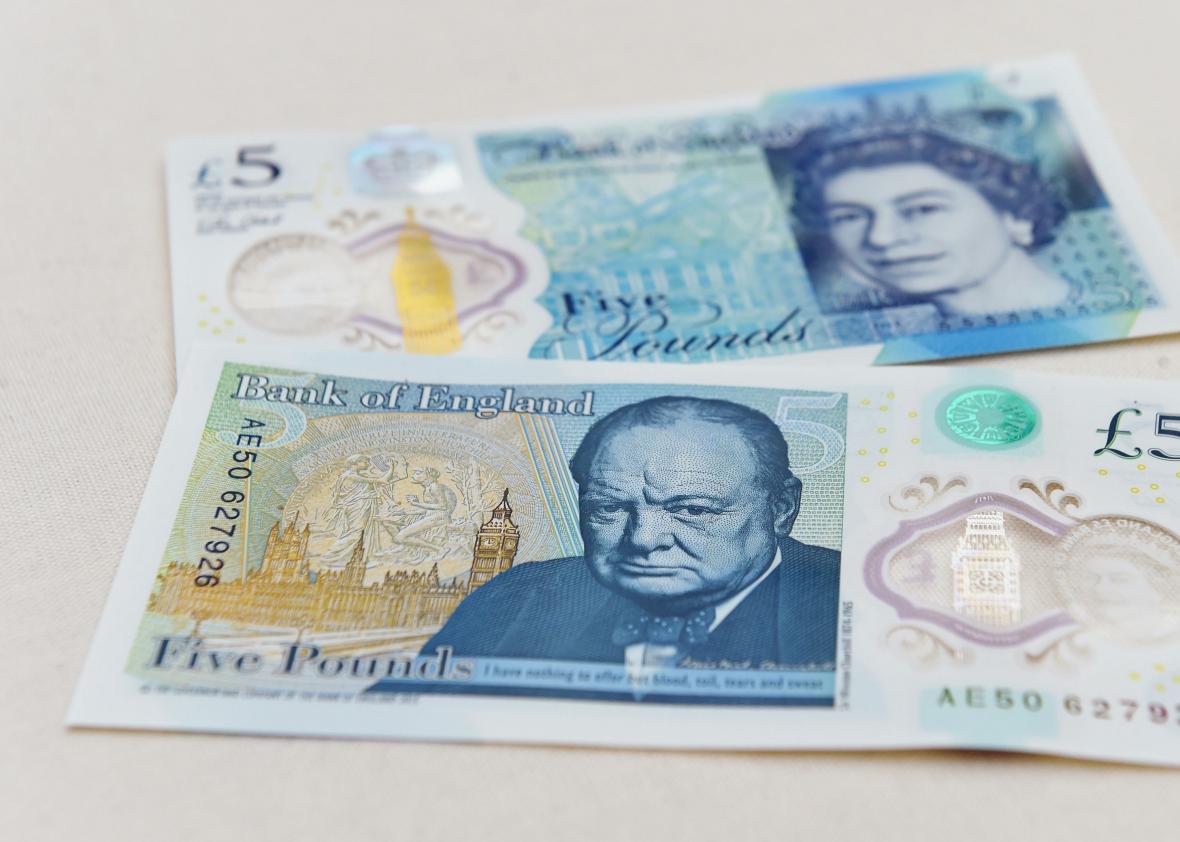The British pound has been losing value lately thanks to anxiety over Brexit. But things took a turn for the bizarre during early morning trading in Asia on Friday, when the currency suddenly plunged 6.1 percent in about two minutes before recovering some of its losses. It was like the pound sterling had decided to go bungee jumping while most of the U.K. was slumbering.
The culprit behind the flash crash? Well, nobody’s quite sure what started the selling. It may have had something to do with French President François Hollande’s comments that Europe would have to take a firm, unforgiving stand while negotiating Brexit terms, which strongly implies Britain’s banks are going to get roughed up in the deal. Others suggest the drop may have started with a “fat finger error”—which is Wall Street–ese for an accidental trade. (Oops! Butterfingers! Sorry about your currency!) Another hypothesis is that it may have involved a “barrier option,” a kind of derivative trade that triggers when an underlying asset hits a certain price.
Whatever started the crash, though, everyone seems to agree it quickly snowballed thanks to computerized trades that automatically piled on. It was also exacerbated by the fact that trading in the pound is pretty light during the Asian morning hours—the crash occurred around midnight London time, which one analyst called a “twilight zone” for the foreign exchange market—meaning that just a few sellers can make a major difference in prices. As one analyst summed up the odd event to Bloomberg: “It would seem that it caught the market wrong-footed and triggered a lot of algorithmic selling.”
So, is there any broader significance to this, aside from the obvious implication that Brexit has made a formerly stable currency go loopy? Why, yes there is. As Bloomberg notes, flash currency crashes have become more common lately. One struck South Africa’s rand in January and another hit New Zealand’s dollar in August. A major reason seems to be that the markets have become less liquid and more volatile thanks to “regulatory changes that have seen global investment banks pull back from dealing, leaving fewer parties to take the other side of trade.” That, combined with the rise of robot traders, has set the stage for more of the kind of chaos that just sent the pound swinging.
And maybe someone saw that as an opportunity. As the Wall Street Journal notes, there’s speculation that “opportunistic investors such as hedge funds could have aimed to capitalize on thin trading to sell the pound aggressively.” Or, in other words, someone may have tried to crash the pound intentionally, however briefly. Aren’t markets a blast?
